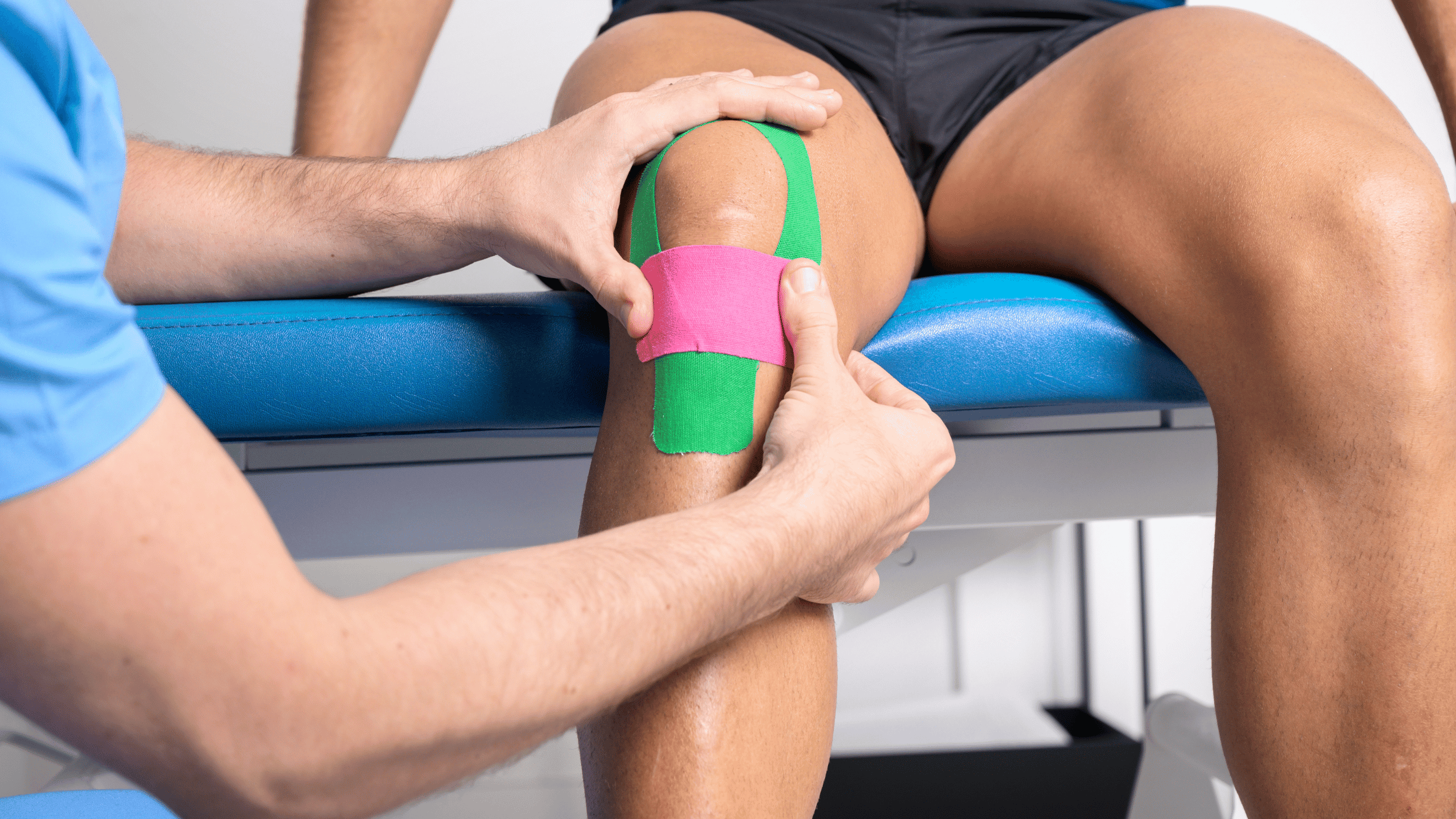© Copyright 2023 Caliber PT PLLC - All Rights Reserved
Sports rehabilitation therapy plays a vital role in the recovery and prevention of injuries for athletes. It is a specialized field that focuses on helping athletes regain their physical strength, mobility, and function after sustaining an injury. By utilizing various techniques and strategies, sports rehabilitation therapists work closely with athletes to ensure a safe and effective recovery process.
One of the primary goals of sports rehabilitation therapy is to help athletes return to their pre-injury level of performance. They understand that injuries can have a significant impact on an athlete's mental well-being, so they provide support and guidance throughout the recovery process.
In addition to aiding in the recovery process, sports rehabilitation therapy also plays a vital role in injury prevention. By identifying potential risk factors and implementing appropriate preventive measures, sports therapists can help athletes reduce their chances of getting injured again. They assess an athlete's movement patterns, muscle imbalances, and biomechanics to identify areas of weakness or instability that may contribute to future injuries. Through targeted exercises, stretching routines, and education on proper body mechanics, sports rehabilitation therapists empower athletes with the knowledge and tools they need to stay injury-free.
Techniques Used in Sports Rehabilitation Therapy
In sports rehabilitation therapy, various techniques are used to help athletes recover from injuries and improve their overall performance. These techniques include physical therapy and massage/manual therapy.
Physical Therapy Techniques
Physical therapy plays a vital role in sports rehabilitation. It involves the use of exercises, stretches, and other interventions to restore function, reduce pain, and prevent further injury. The physical therapists at Caliber PT are all highly trained professionals with years of experience who specialize in evaluating and treating musculoskeletal conditions.
Based on your injuries and needs, physical therapists will tailor a program of targeted exercises designed to strengthen muscles, improve flexibility, and restore normal movement patterns. Caliber PT therapists will provide one-on-one attention to ensure proper form for your rehabilitation. Therapeutic exercises can be tailored to the specific needs of each athlete based on their injury or condition.
Another important physical therapy technique is manual therapy. This involves hands-on techniques performed by the therapist to manipulate joints, soft tissues, and muscles. Manual therapy can help reduce pain, improve joint mobility, and enhance overall function. Examples of manual therapy techniques used in sports rehabilitation include joint mobilization, soft tissue mobilization, and myofascial release.
Physical therapists may also use modalities such as heat or cold therapy, electrical stimulation, ultrasound, or laser therapy as part of the treatment plan. These modalities can help reduce inflammation, relieve pain, promote healing, and improve circulation.
Massage and Manual Therapy
Massage and manual therapy are integral components of sports rehabilitation. They can help athletes recover from injuries faster by improving blood flow, reducing muscle tension, promoting relaxation, and enhancing overall well-being.
Massage therapy involves the manipulation of soft tissues using various techniques such as effleurage (long strokes), petrissage (kneading), friction (deep circular movements), tapotement (percussion), and vibration. These techniques can help break down scar tissue, increase range of motion, relieve muscle soreness/stiffness, and promote lymphatic drainage.
Manual therapy techniques, as mentioned earlier, are also used in sports rehabilitation. These hands-on techniques can help improve joint mobility, release muscle tension, and alleviate pain. The therapist may use their hands or specialized tools to apply pressure, stretch tissues, or mobilize joints.
Both massage and manual therapy can be tailored to the specific needs of each athlete. The therapist will assess the individual's condition and develop a treatment plan that addresses their unique requirements. Massage and manual therapy can help an athlete's recovery process and overall performance.
Educating Athletes on Injury Prevention
Educating athletes on injury prevention is a crucial aspect of the role of a sports rehabilitation therapist. These therapists play a vital role in helping athletes understand the importance of taking proactive measures to prevent injuries before they occur. By educating athletes on injury prevention, sports rehabilitation therapists empower them to make informed decisions and take necessary precautions to protect their bodies during training and competition.
One of the primary reasons why educating athletes on injury prevention is essential is because it helps them develop a better understanding of their bodies and how they function. Sports rehabilitation therapists educate athletes about the anatomy and mechanics of their muscles, joints, and ligaments, explaining how these structures can be vulnerable to injuries if not properly cared for. By providing this knowledge, therapists enable athletes to recognize potential risk factors and make adjustments in their training routines or techniques accordingly.
Sports rehabilitation therapists use various methods to educate athletes on injury prevention. One common approach is through individualized consultations or group workshops where they discuss common sports-related injuries and provide practical tips on how to avoid them. During these sessions, therapists may demonstrate proper warm-up exercises, stretching techniques, or recommend specific strength and conditioning exercises tailored to each athlete's needs.
Stages of Sports Rehabilitation
Sports rehab is a crucial aspect of an athlete's journey towards recovery and optimal performance. It involves a series of stages that are designed to assess, plan, implement, and monitor the progress of an athlete's rehabilitation process. These stages are essential for ensuring that athletes receive the appropriate care and support they need to recover from injuries and prevent future ones. Let's take a closer look at each stage in detail.
Evaluation and Assessment
The first stage of sports rehabilitation is evaluation and assessment. During this stage, a physical therapist works with athletes to determine the extent of their injury or impairment. This evaluation involves assessing various factors such as range of motion, strength, flexibility, balance, and functional abilities. We explain more about what you can expect and how you can prepare for your first visit here.
An important aspect of this stage is understanding the athlete's medical history and previous injuries. By gathering this information, the therapist can gain valuable insights into potential risk factors or underlying issues that may have contributed to the current injury. This comprehensive evaluation helps in developing an individualized treatment plan tailored to meet the specific needs of the athlete.
The evaluation process may include various tests and assessments such as strength testing, joint stability assessment, gait analysis, and functional movement screening.
Treatment Planning and Implementation
Once the evaluation and assessment stage is complete, the next step is treatment planning and implementation. Based on the findings from the evaluation, the sports rehabilitation therapist develops a customized treatment plan that addresses the specific needs of the athlete.
Treatment plans typically involve a combination of therapy services including exercises, manual therapy techniques, modalities (such as heat or ice), functional training activities, and education on proper body mechanics. The goal is to restore function, reduce pain and inflammation, promote healing, improve strength and flexibility, enhance proprioception (awareness of body position in space), and ultimately facilitate a safe return to sport.
The implementation of the treatment plan involves working closely with the athlete to ensure proper execution of exercises and techniques. At Caliber PT, our therapists prioritize a collaborative approach, working hand-in-hand with our clients to create individualized treatment plans. we also collaborate with other healthcare professionals, such as orthopedic surgeons or nutritionists, to optimize the athlete’s overall care. This commitment to cooperation ensures that every aspect of our client’s health and wellbeing is accounted for, providing a comprehensive and effective healthcare experience.
Progress Monitoring and Adjustments
Monitoring the progress of an athlete's rehabilitation is crucial for making necessary adjustments to their treatment plan. This stage involves tracking various indicators of improvement, such as pain levels, range of motion, strength gains, functional abilities, and overall performance.
Sports rehabilitation therapists use their vast knowledege of sports medicine, a combination of objective measurements (e.g., range of motion assessments) and subjective feedback from the athlete to monitor progress accurately. These measurements help track changes over time and provide valuable information for modifying treatment techniques or progressing exercises.
Regular re-evaluations are conducted to assess the effectiveness of the current treatment plan and make any necessary adjustments. This allows therapists to tailor the rehabilitation program according to the athlete's evolving needs and goals. By closely monitoring progress and making appropriate modifications, therapists can optimize outcomes and ensure a safe return to sport.
Benefits of Sports Rehabilitation Therapy
Sports therapy is a game-changer for athletes. It doesn’t just help them bounce back from injuries, it also aids in enhancing their performance.
Here’s the deal: when injured, your therapist targets the root cause, not just the symptoms. This way, you heal effectively and reduce the chances of future injuries. They use techniques like manual therapy and exercise programs to speed up recovery.
Your sports therapist also helps boost your performance. They use exercises and conditioning programs to strengthen your body and optimize your movements.
Sports rehab therapy is all about fast recovery, preventing future injuries, and improving performance.
Experience the game-changing impact of sports therapy with Caliber PT, your partner in fast recovery, injury prevention, performance enhancement, and relentless support throughout your athletic journey.

